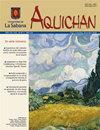Main Self-Care Deficits Found in Elderly People with Diabetic Foot Ulcer: An Integrative Review
Q3 Nursing
引用次数: 1
Abstract
Introduction: The increase in the incidence of diabetes mellitus has led to public health consequences. Several individuals with diabetes lose sensitivity and may present foot deformities, resulting in diabetic foot. Knowing about self-care deficits can allow for planning healthcare in the management of diabetic foot and improve the patient’s quality of life. Objective: To identify, from the scientific literature, the main self-care deficits present in elderly people with diabetic foot ulcers, based on Orem’s self-care deficit theory. Materials and methods: This is an integrative review study. The search for studies was performed in January 2022, using the descriptors “diabetic foot”, “self-care,” and “aged.” The following virtual library and databases were used: BVS, Lilacs, Medline and BDEnf via PubMed. The adaptation of the Prisma flowchart was used. A synthesis of the articles was performed with the description of the main results and self-care deficits according to Orem’s self-care theory. Results: Socioeconomic conditions, skin characteristics, activities, leisure and rest, diet, neurological conditions, and lack of knowledge about the need for therapeutic support and treatment were the main factors related to self-care deficits. Conclusion: The scientific evidence generated provides a foundation for carrying out new studies on the theme, as well as assisting in decision-making by nurses to adopt measures that assist in the self-care of this population group, in addition to guiding this population regarding the necessary care.老年糖尿病足溃疡患者主要自理缺陷的综合评价
引言:糖尿病发病率的增加已导致公共卫生后果。一些糖尿病患者失去了敏感性,可能会出现足部畸形,从而导致糖尿病足。了解自我护理缺陷可以为糖尿病足的管理制定医疗保健计划,并提高患者的生活质量。目的:根据Orem的自我保健缺陷理论,从科学文献中确定老年糖尿病足溃疡患者的主要自我保健缺陷。材料和方法:这是一项综合综述研究。搜索研究于2022年1月进行,使用了“糖尿病足”、“自我护理”和“年龄”等描述符。使用了以下虚拟图书馆和数据库:BVS、Lilacs、Medline和通过PubMed的BDEnf。采用了对棱镜流程图的改编。根据Orem的自我保健理论,对文章进行了综合,描述了主要结果和自我保健缺陷。结果:社会经济状况、皮肤特征、活动、休闲和休息、饮食、神经系统状况以及缺乏对治疗支持和治疗需求的了解是导致自我护理缺陷的主要因素。结论:所产生的科学证据为开展这一主题的新研究提供了基础,并协助护士决策采取措施,帮助这一人群进行自我护理,此外还指导这一人群提供必要的护理。
本文章由计算机程序翻译,如有差异,请以英文原文为准。
求助全文
约1分钟内获得全文
求助全文
来源期刊

Aquichan
NURSING-
CiteScore
1.10
自引率
0.00%
发文量
32
审稿时长
>12 weeks
期刊介绍:
Aquichan, a journal of medical and health sciences from the field of health sciences and, more specifically, nursing, publishes articles resulting from investigations from a point of view of epistemology, evidence-based practice, chronic care, promotion and prevention. The articles are for the academic and scientific community, both in Colombia and abroad.
The journal accepts original, previously unpublished papers in Spanish, English, and Portuguese, which are the product of a research or a review and which are not being evaluated by other scientific journals, either in print or electronic form.
 求助内容:
求助内容: 应助结果提醒方式:
应助结果提醒方式:


